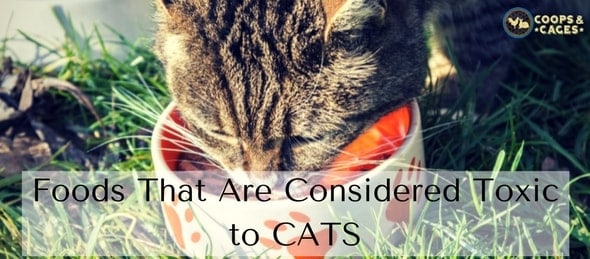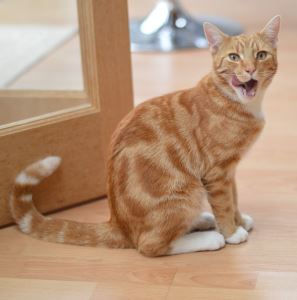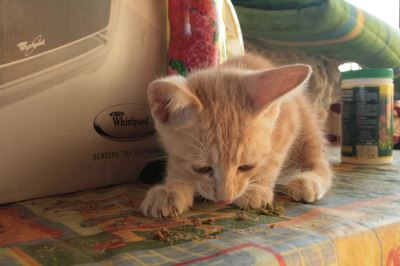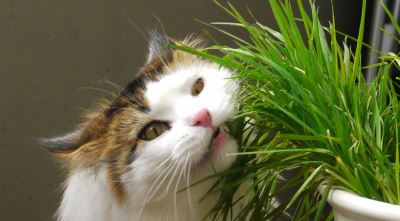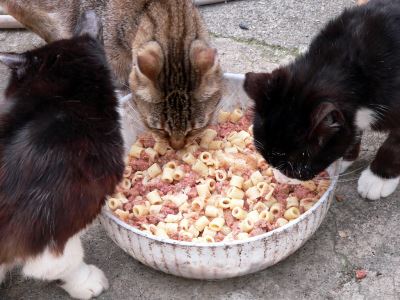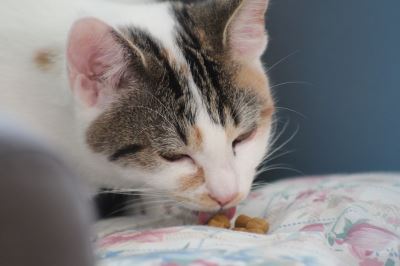Cats
Foods That Are Considered Toxic to Cats
If you see your cat looking at you with those big round eyes, begging for the food you are about to eat, would you say ‘no’? Of course, we can understand if you don’t. We know that it’s hard to resist not letting them taste the sumptuous treat were feasting in. However, while we all have good intentions, we have to understand that some human foods are not safe for them.
So before you can even cause any serious injuries to your cats, it is important that you be very careful when feeding “people food” to them and make sure they don’t eat any of the following:
1. Chocolate
This calls for a celebration! Yes, you can now keep and enjoy all the chocolates yourself!
Whether you believe it or not, chocolates are among the top reasons cats are poisoned. In fact, chocolate poisoning incidents are at its peak during festive events like birthdays, Christmases, and even Valentine’s Day, where there is abundance in the supply of chocolates in the household.
But what is so bad about these sweets? Chocolates contain a compound called ‘theobromine” that may cause cats to experience diarrhea, rapid heart rate, seizures, vomiting, and even muscle tremors.
2. Dog Food
So you might be thinking that this is a no-brainer. But you would be surprised to know that many cat owners feed their feline friends with dog food. For that, it’s worth discussing the differences between the two to avoid committing more mistakes.
Although cats don’t usually adore and feed on commercial dog food, there are times when they do. And it’s never really a great idea. Well, at least not on a day-to-day basis. The reason is that cats require vitamin A and Taurine, which are not present in dog food.
3. Cow’s Milk
Feeding cow’s milk to cats is highly discouraged, especially if they’re no longer kittens. Like some humans, certain cat breeds are lactose intolerant. This means their bodies don’t have the ability to produce enzymes that are needed to digest and process the lactose found in milk.
Whenever cats drink cow’s milk, the possible thing that’ll happen is that they’ll experience diarrhea and stomach cramps. This is due to the fact that lactose stays in the intestines than circulating into the bloodstream.
4. Macadamia Nuts
Does your pet cat love macadamia nuts? Well, now is the time to avoid feeding it to him. According to experts, ingestion of macadamia nuts by cats has been associated with a nonfatal syndrome that is characterized by hyperthermia, depression, and vomiting.
If you suspect your cat has eaten these nuts, call your vet immediately and seek medical advice.
5. Garlic and Onions
We all enjoy garlic and onion. We love to have them in our stews and pizza. Not only do we like their aroma and flavour, they also help avoid diseases and illnesses. But did you know that these two could cause your cats to die?
Regardless if this is cooked, powdered, dried, or fresh, garlic and onion poisoning can happen anytime. Our furry pals could not digest these foods like we humans do. As a result, they experience ‘hemolytic anemia’ wherein red blood cells that are circulating throughout their body are bursting.
Normally, symptoms of garlic or onion poisoning occur within 24 hours. These include rapid heart and breathing rate, weakness, vomiting, breathlessness, and pale gums.
6. Avocado
Though there are several fruits that pets and humans can enjoy, there are some that can be dangerous to them. An example for that is the avocado.
The fruit, leaves, bark, and seeds of the avocado contain a poisonous substance called ‘persin’. So when ingested by your pet cats, it can quickly result in diarrhea or vomiting.
7. Raisins and Grapes
Grapes and raisins are not just poisonous to dogs; they are also unsafe for cats. Because these foods contain a toxic agent, it can cause your pets’ kidney to fail big time. And you don’t like that to happen.
Within 24 hours upon ingestion, symptoms are more likely to occur. These include lethargy, vomiting and diarrhea.
8. Raw Fish
Contrary to what we see on the television, raw fish is actually toxic to cats. It causes the destruction of the cat’s body’s Thiamine production, which when left untreated, may lead to seizures or death.
Based on statistics, most human food poisoning cases in cats happen by accident. They might have seen a package of nuts on top of the cat scratching post and find them enticing or they might have found some ripe avocado fruits falling from the tree. While these are all out of our control, the best way to prevent the worst from happening is to make sure people food are inaccessible to them. And as soon as you discovered that your cat has eaten a potentially dangerous food, contact your vet right away.
Image Sources: [1] [2] [3] [4]



